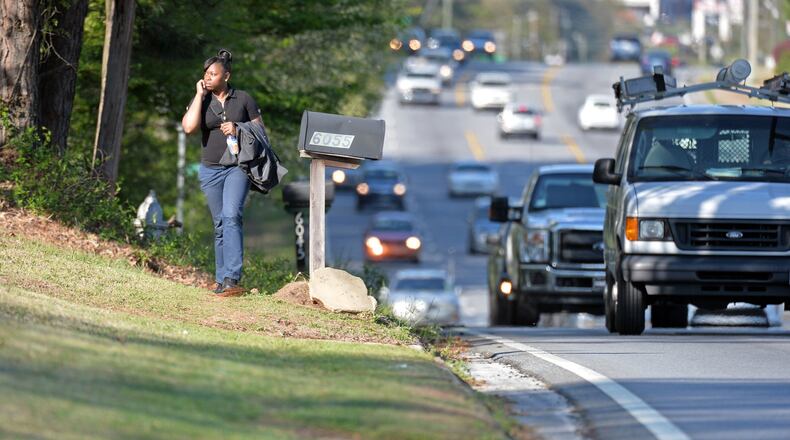Gwinnett County commissioners will decide Wednesday how to spend an estimated $322 million the county expects to collect from the three-year, 1-percent sales tax approved by voters in November.
Seventy percent of proceeds from the special purpose local option sales tax, or SPLOST, will go to transportation projects.
An 18-member citizens committee has recommended how to divvy up the money. Their recommendations include spending at least $48 million to widen major roads, $33 million to improve intersections and $27 million for new sidewalks. Commissioners will vote Wednesday on the recommendations.
The rest of the money will be spent on other projects, including renovating existing county parks; buying new fire, police and sheriff’s office vehicles; replacing public libraries; and improving county senior centers
In addition, Gwinnett cities are expected to receive an estimated $96 million in SPLOST proceeds to spend on projects of their choosing.
Last week, city and county officials praised the citizens committee for selecting projects fairly and in public.
“One of our priorities is to rebuild the trust with the people,” Commissioner Tommy Hunter said. “I hope that people see that it’s not just a show.”
But in a county where about half of residents are not white, the group that selected the county-wide transportation projects appears to be almost entirely white. More diversity on the committee would help ensure SPLOST funds are spent fairly, Duluth resident Penny Poole said.
“There are several places in the county where people are wanting extras,” said Poole, who is African American. “But there are neighborhoods that are still needing their minimum.”
County officials say the meeting at which the members of the project selection committee were selected was advertised in local media, including a Korean-language radio station.
The members of the committee were elected by the approximately 60 people who showed up at that meeting. The final committee included a representative and alternate from each of the county’s four commission districts and representatives and alternates representing business, civic, environmental, school and senior citizen concerns.
“We were not a rubber-stamp committee,” committee Vice Chair Renee Byrd-Lewis said. “We feel very good about how the dollars have been distributed.”
In terms of dollars, the committee proposes spending the most in the relatively less-dense Commission District 3, which stretches along the eastern side of Gwinnett County from Snellville to Auburn. District 2, which includes some of the county’s densest areas around Peachtree Corners and Norcross, would get significantly less.
That’s largely because the county has already tackled expensive major road improvements in the denser areas of Gwinnett, Transportation Director Kim Conroy said.
The county’s long-term master plan calls for concentrating new development in already built-up areas. But following that plan was not a major factor in the project recommendations. Spending county money efficiently and making it easier and safer for people to get around Gwinnett County was, Conroy said.
At one of the Dacula-area intersections slated for improvement, drivers sometimes sit through five traffic light cycles before moving through, Conroy said.
“My position can’t be and won’t be, ‘If we improve this intersection, what’s this do to development and density,’” he said. “[Projects are] built to address current needs, not influence future development.”
In contrast to some previous SPLOST spending plans, the proposed projects do not include construction of new roads.
But the SPLOST plans do call for 28 miles of new sidewalks, including about three miles of sidewalk along Lawrenceville Highway in the Tucker-Lilburn area. The majority of dollars spent on new sidewalks would be in District 2.
Because the county does not receive SPLOST funds in one lump sum, work on the approved projects will begin as money is available, Conroy said.
About the Author
Keep Reading
The Latest
Featured



